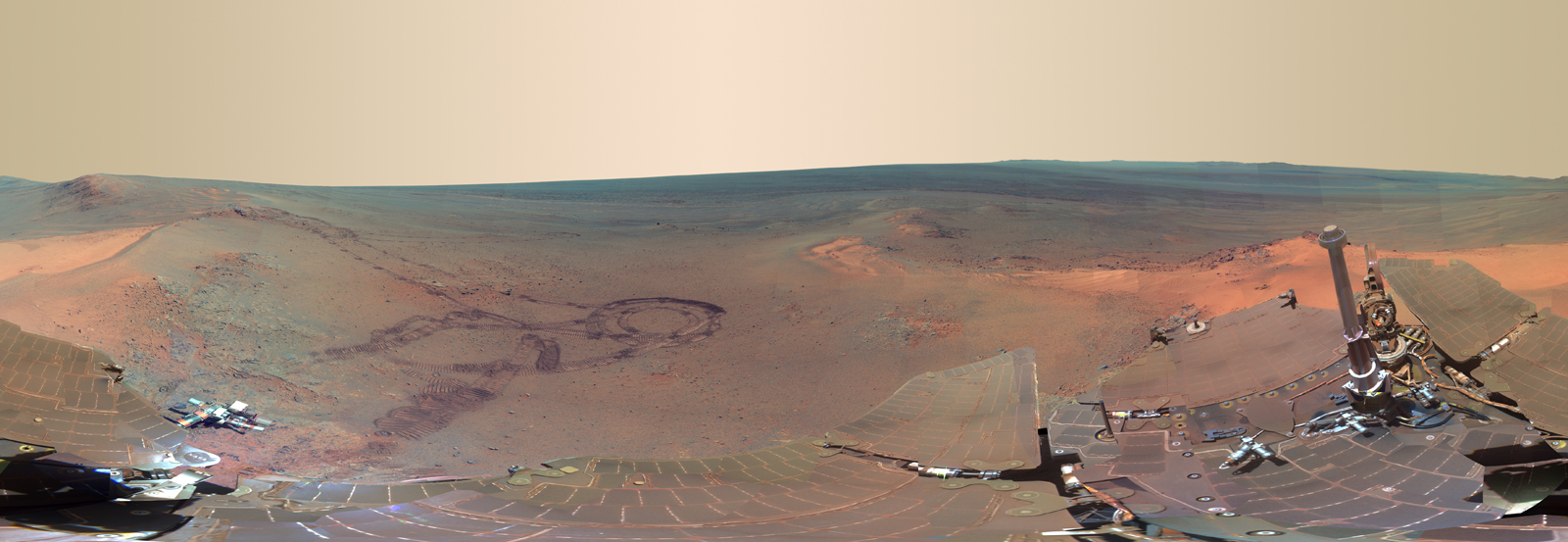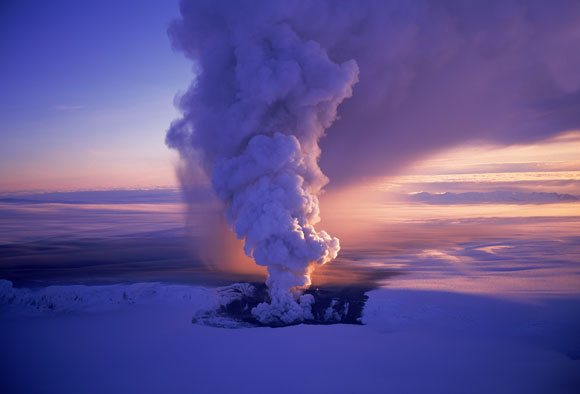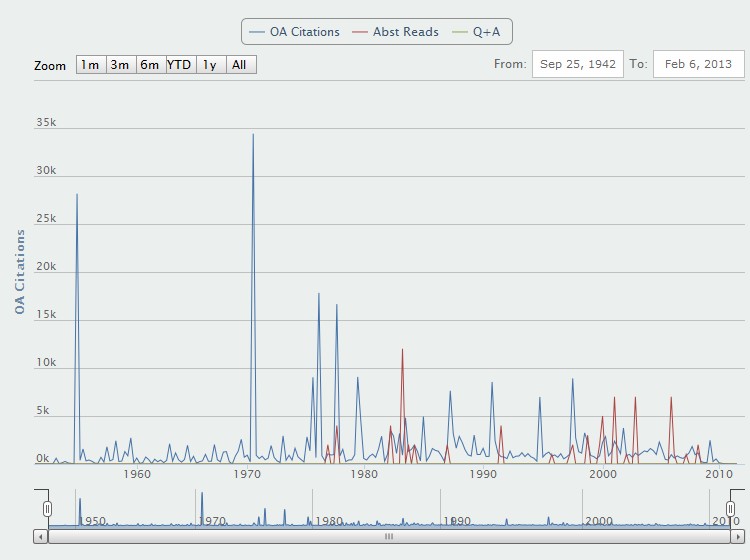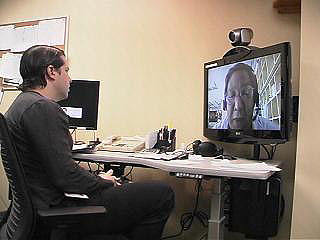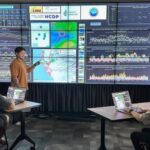Welcome to 2013 and our first headlines posting of the year. This week’s stories include:
- Mars Rover Approaches Ninth Anniversary on the Planet and is Still Ticking
- Study Correlates Climate Change with Increased Episodes of Volcanism
- Smartphone Application Gives Voice to Those Who Cannot Speak for Themselves
- New Knowledge Aggregation Site Gives Researchers Access to 25,000 Journals and Counting
- A Hospital with No Patients – Go Figure!
Opportunity May Be an Arthritic ‘Eveready Bunny’ But the Robot Keeps on Going
Yesterday marked the ninth anniversary of the landing of the first of two Martian robotic rovers on Mars. The first was named Spirit. The second was called Opportunity landing three weeks later. Originally both had a planned mission lasting 90 days with a goal to find past signs of water, study Martian geology and geochemistry. Both robots quickly found evidence of past water on Mars, and both rovers operated far longer than anyone had anticipated.
Spirit finally gave out after getting trapped in sand dying in March 2010. But Opportunity has continued on its journey to this day having driven a distance of 35.44 kilometers (22 miles). Today the rover is exploring Endeavour Crater and despite an arthritic robotic arm and not to be outdone by its younger new companion rover, Curiosity, continues to provide us with new discoveries. Recently NASA provided us with a snapshot (see below) of the rover’s neighborhood, stitching together a composite of 817 images taken between December 2011 and May 2012 as Opportunity remained parked for a period during the Martian winter.
Climate Change May Cause Volcanic Eruptions – Seriously?
It sounds like a real stretch to associate increased volcanism with rising atmospheric temperatures but a study published in the November 2012 issue of Geology called A detection of Milankovitch frequencies in global volcanic activity proposes a correlation between ice age mass redistribution from melts with rising volcanic activity and proposes a causal link between ice age climate variability, stress changes on continental plates and volcanic eruptions. The researchers postulate that the speed of transition from periods of intense glaciation followed by interglacial warming and the consequent rebound effect on continental land masses is a smoking gun.
Does that mean if we humans continue to warm the atmosphere and Greenland and Iceland glaciers melt we will suddenly see increased volcanic activity? The scientists discovered a 2,500 year time lag between melts and the eruptive phases. So we’re good to go for a couple of thousand years or are we?
Some scientists believe we may already be seeing evidence of a cause and effect response resulting from a 10% melt of Iceland’s biggest glacier since 1890. The land has been rising 25 millimeters (about 1 inch) per year as a result and this is leading to geological stresses with the formation of 1.4 cubic kilometers (0.3 cubic miles) of magma exerting pressure on the surface leading to activity from a sub-glacial volcano in the Vatnajokull National Park (see picture below).
Smartphone Application Called TalkRocket Go Allows People with Speech Disabilities to Communicate
There are 70 million people on our planet that have no voice. Now a $99 smartphone application can give them one and in almost any language. TalkRocket Go is the creation of a Toronto, Canada, based company. It isn’t the first application or technology designed to address those who cannot speak for themselves (check out a previous article I wrote on the subject on this blog site). It is, however, the first to be ported to smartphones making it far more accessible and affordable for anyone facing the challenge of not being able to speak. Surprisingly, that entails a lot of people including those who are dealing with:
- ALS
- Autism
- Aphasia
- Brain cancer and traumatic brain injuries
- Cerebral palsy
- Deafness
- Developmental delay and Down Syndrome
- Parkinson’s
- Stroke
Currently available for the Apple iPad, iPhone and iPod Touch, the application allows users to build location-based vocabularies rapidly. This unique features not only addresses who they are but where they are. A development tool kit allows for customization from any web browser. And even if your Apple product breaks, your personal vocabulary is maintained in the cloud at the MyVoice site so you can get a new device and with a quick download be good to go.
Want to learn more? Check out the video on how to use TalkRocket Go here.
Cancer Researcher Develops Search Engine to Organize Journal Content on the Web
When you do a Google search on any topic you get results that include scholarly articles. Click on the links provided and you face a list of journal reports bearing long and difficult to understand titles. But how do you know which articles represent the latest research on the subject you’re interested in? The only way is to go through them all and organize them by date. With as many as 4,000 new ones coming to the web each day it becomes an almost impossible task, a state of information overload.
For researchers that’s a major problem, particularly when you are just starting a new project. The first step involves a literature review. Then you begin what you hope will be independent research leading to a new discovery. But all the while you are working your competition may be publishing their findings and when you get to the end of your study you find you have been outflanked and been beaten in your efforts to be first to publish.
That’s why ScienceScape was created by a Toronto cancer researcher along with his sister, a web designer with the two collaborating to organize the history of science. Together they have compiled a database of over 23 million journal papers and are constantly adding thousands more each day. Users can sign up at the site for free where they will find seminal papers in their fields fully indexed, organized and displayed chronologically and graphically (see image below). They can read abstracts, mark specific articles and place them in a personal library. They can filter search results chronologically, by journal, author, institute or field.
Every ScienceScape member creates a personal journal that acts as an information feed, constantly getting updated. And users of the online service can share their discoveries with colleagues. The ultimate goal, say the developers, is to keep science advancing by organizing and delivering all the world’s research at a single place.
A Virtual Hospital with No Resident Patients
The Avera Health Network provides Avera eCARE (TM), a telemedicine and web-based service to rural communities in South and North Dakota, Minnesota, Iowa, Wyoming and Nebraska. Its specialty physicians provide 24-hour a day coverage via Skype and video chat. Although the physicians are located in physical hospital settings, the principal one in Sioux Falls, South Dakota, they operate as a virtual hospital to support medical teams in rural areas and saving patients thousands of dollars a year in time and travel when they need to see a specialist.
They call the service hands-in-pocket doctoring and have even launched Avera eICU CARE, the first rural application of its kind, supporting ICU-level care through telepresence working with the local medical resources including doctors, nurses and pharmacists in the rural communities where they live. The end result is an 18% decrease in the need and use of ambulances and helicopters for emergency patient transfers. That means cost savings without compromising patient care.
A Postscript
The start of 2013 has been filled with crises of finance and the environment from fiscal cliffs to sea-going oil rigs running aground. As the year unfolds I suspect we will see many more incidents that will make us sit up and take notice of the interesting times we live in.
That’s why I hope you have a chance to visit here from time to time throughout the year, a site where you can read about the scientific and technological accomplishments as well as the challenges we humans and the planet face this century. I am confident we will get through this year and the next and the next because when you think about it there has never been a point in time where so many minds can be applied to problem solving. With 7 billion plus of us, that should lead to a lot of invention and discovery. And so welcome to 2013 and the continuing of this conversation.
– Len Rosen

